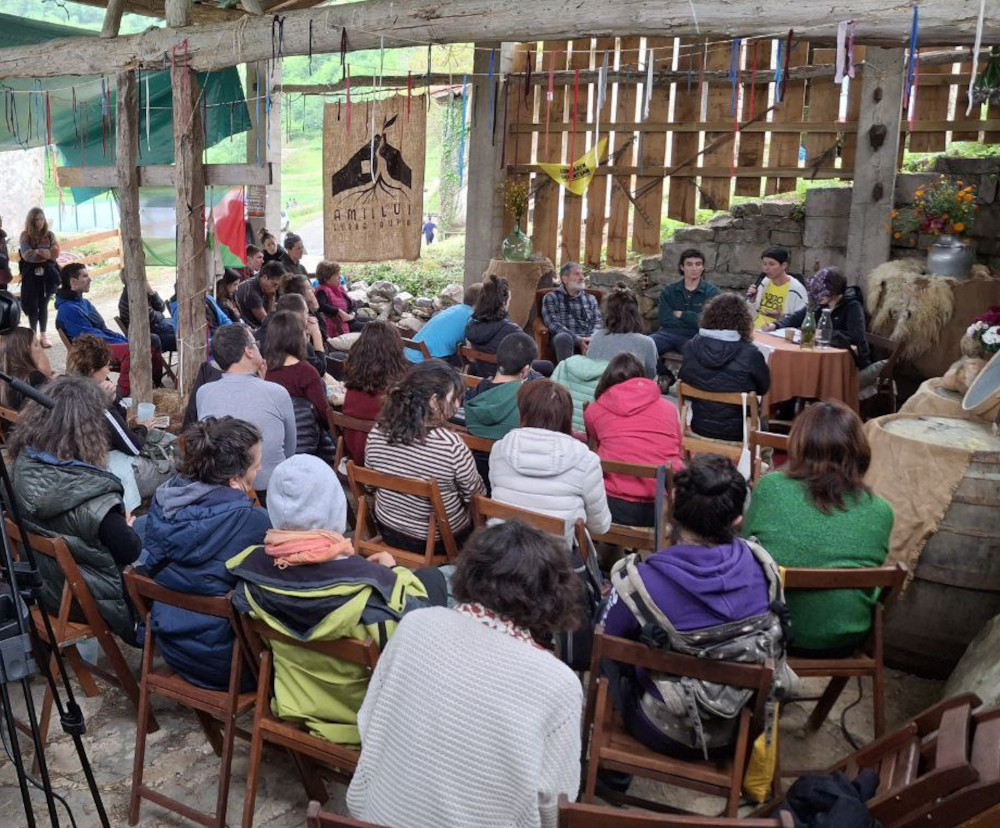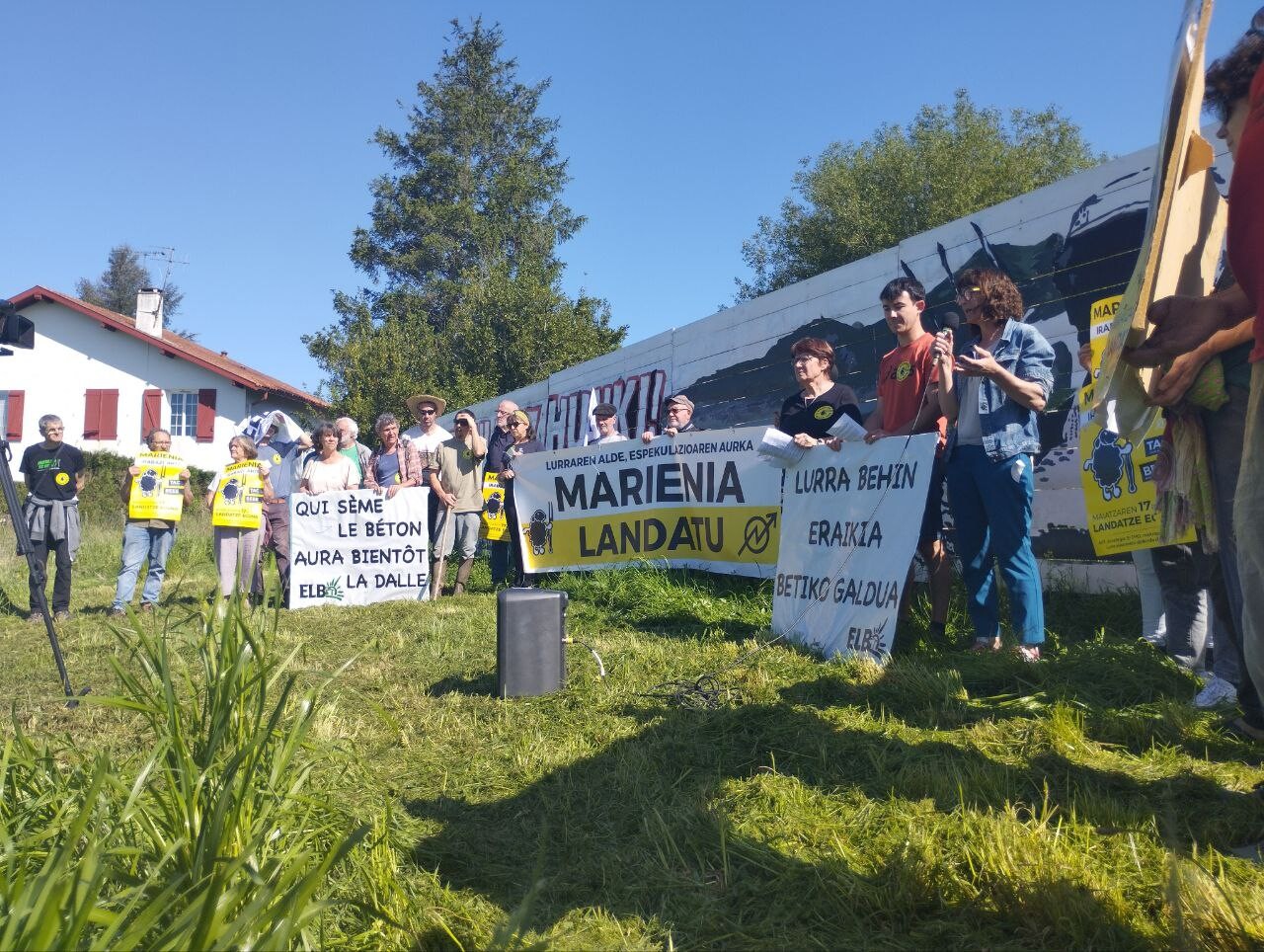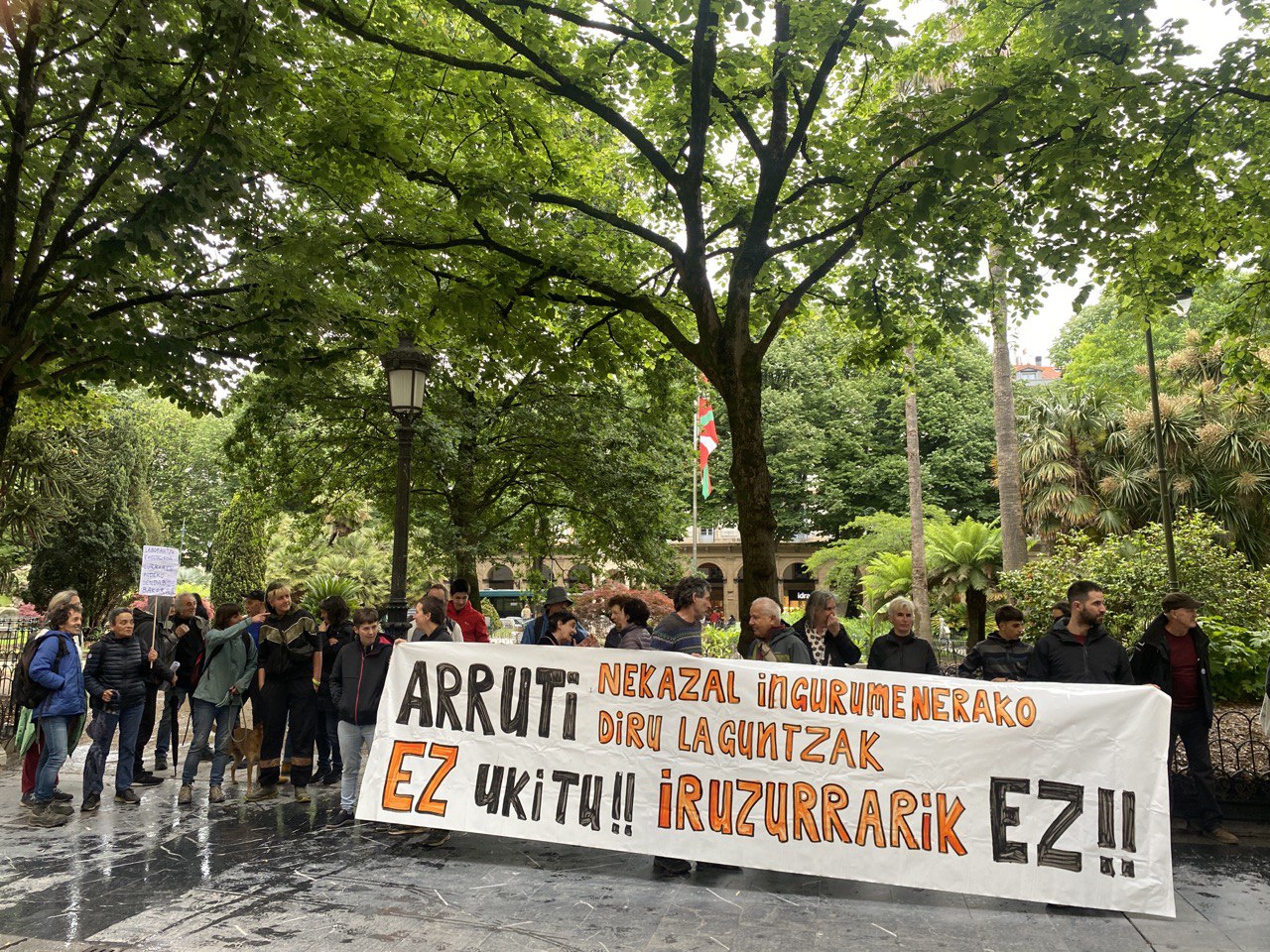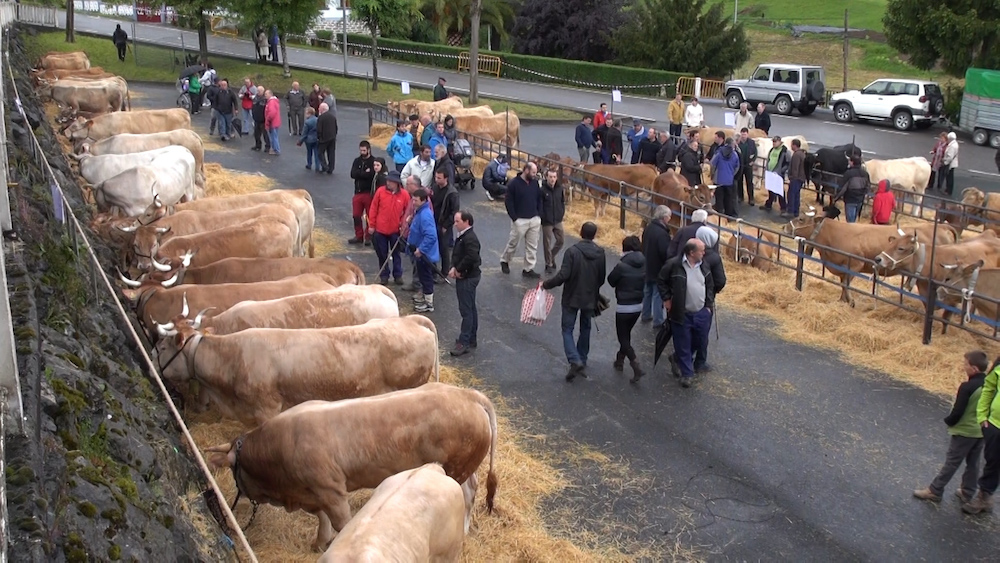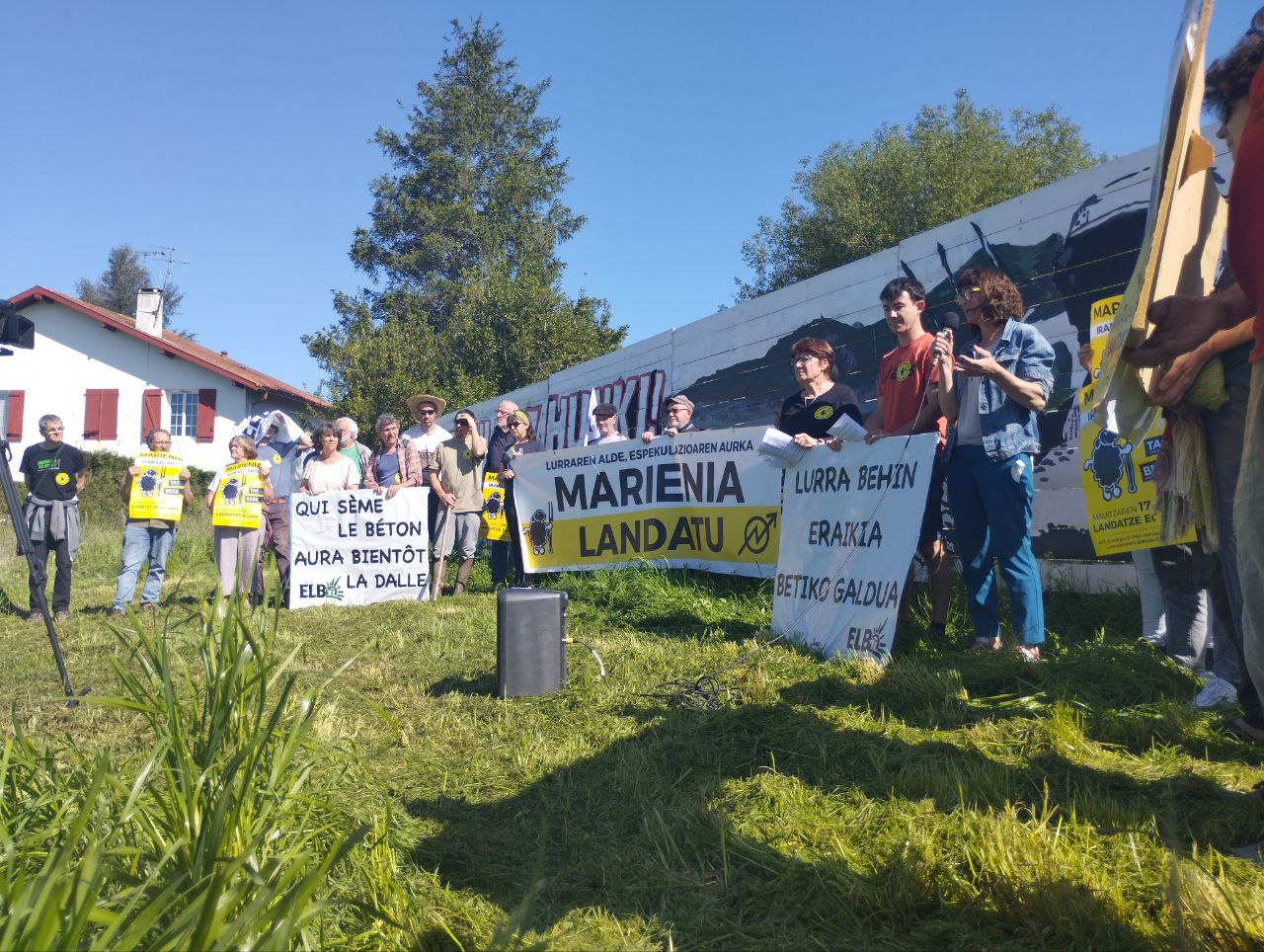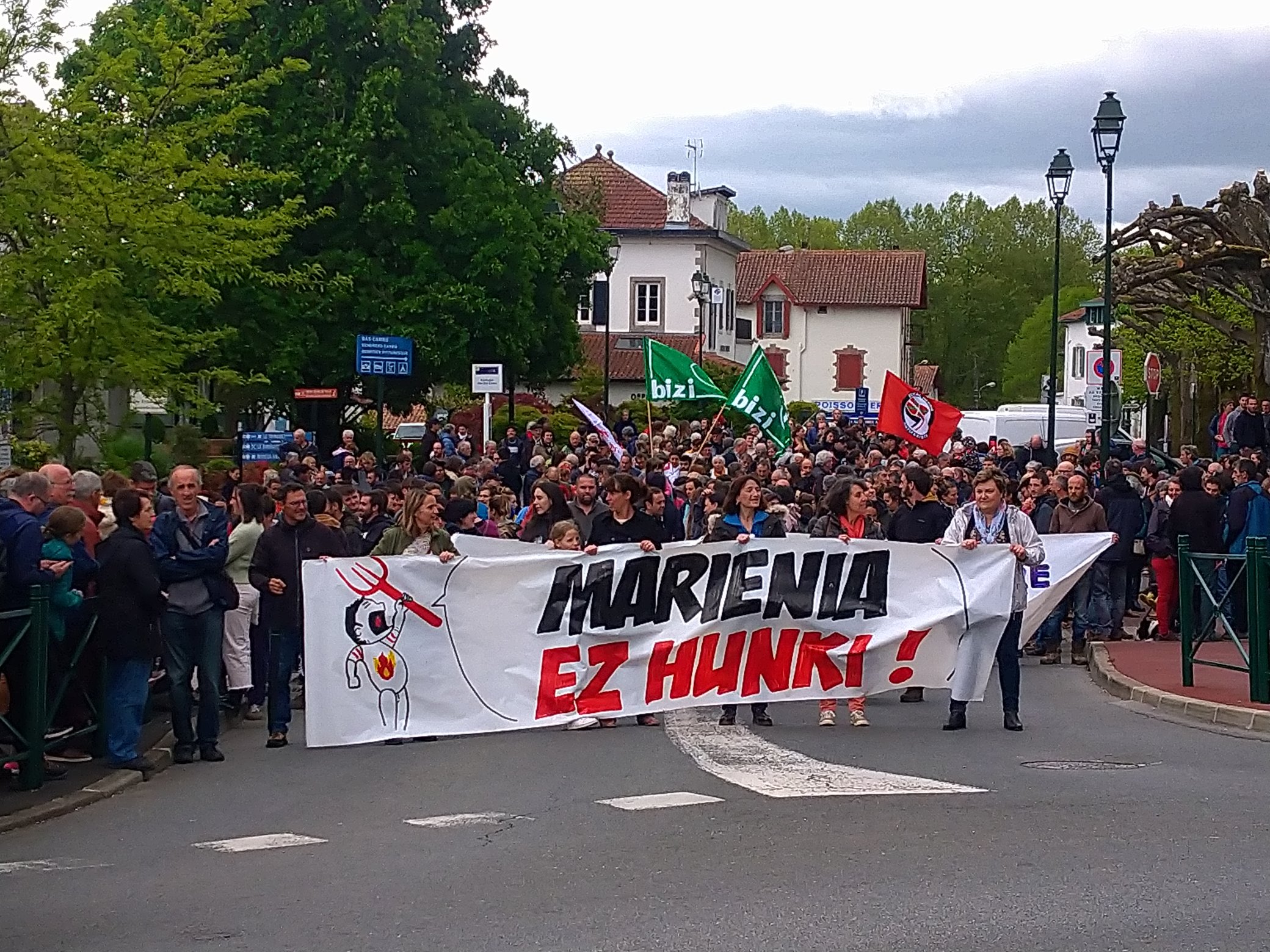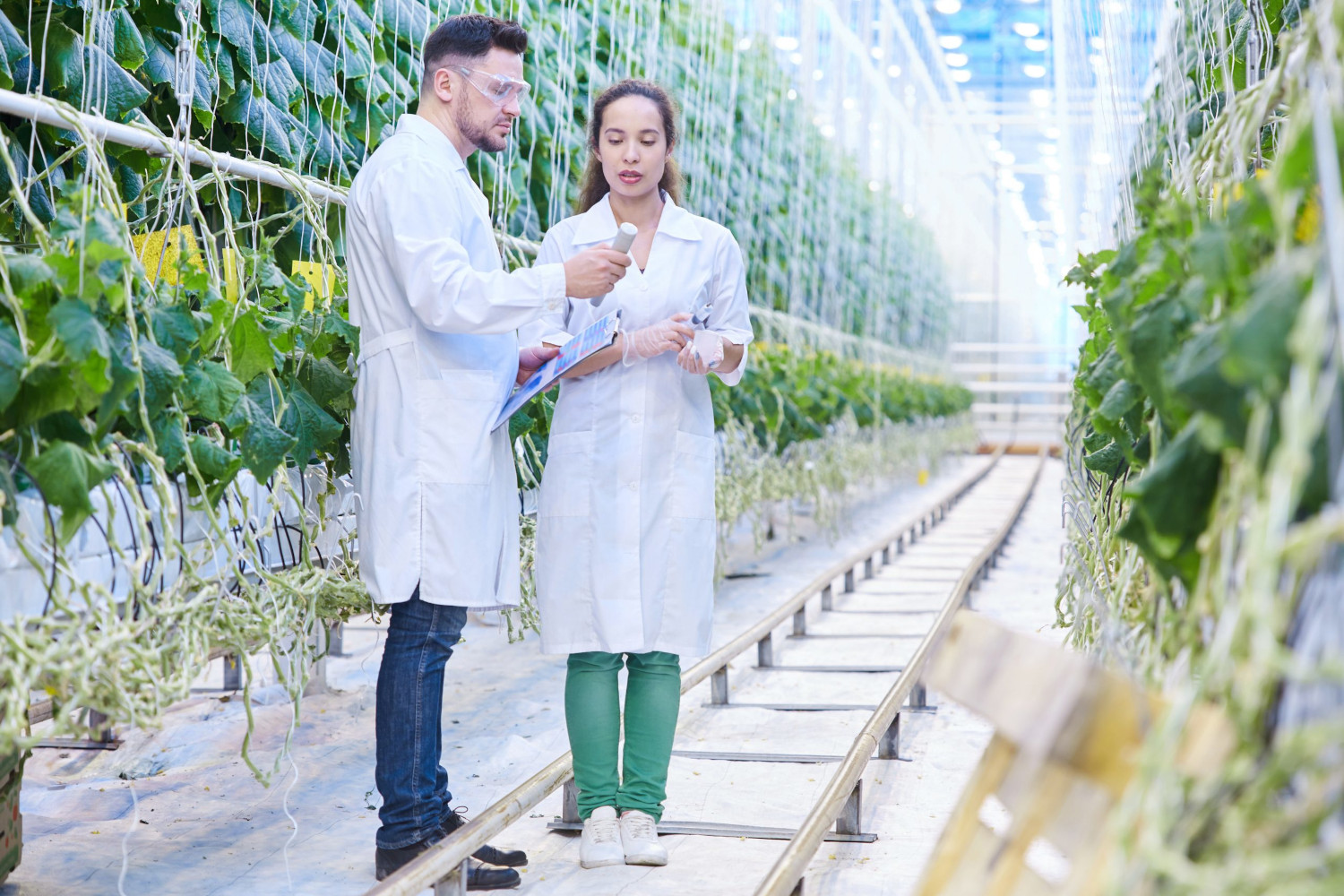"The mission of a superior is not to give orders."
- You may have seen it on the TV show in large waters. We saw it there. But, perhaps, without knowing if you knew it before, you may have tried some milk, yogurt or ice cream produced in the Iztueta-Azpikoa farmhouse in Lazkaomendi. What does it take to sustain the dwarf in the 21st century? What is the role of the landlord? What have women given to the dwelling? Of all this we have asked Maria Jesus Intxausti.
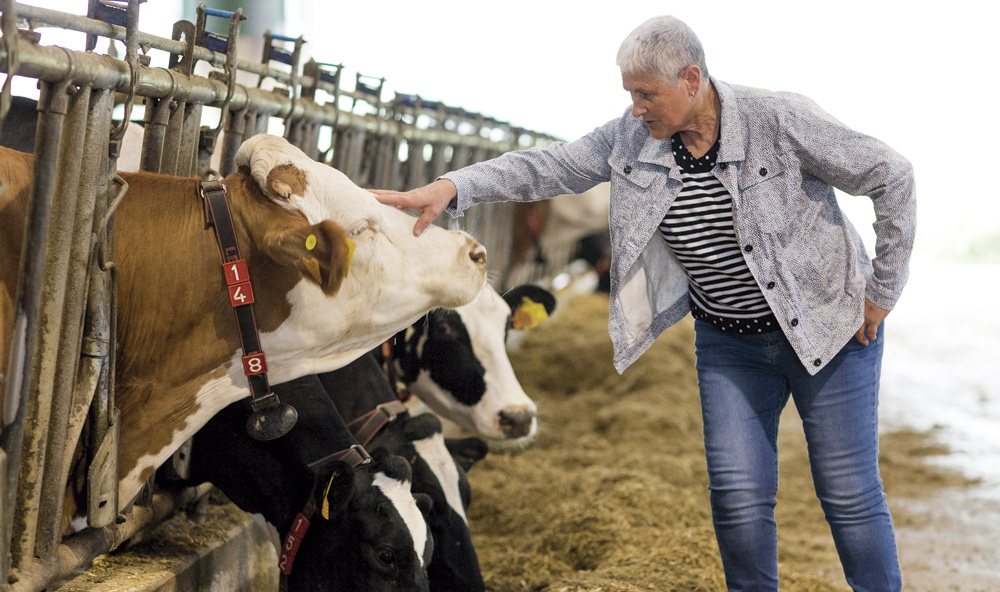
Baserritarra (eta enpresaria). Kanpoan ikasten eta lanean egin zituen bospasei urteez kanpo, baserrian aritu da lanean bizi osoan. Gipuzkoako EHNEko lehendakaria izan zen 1997tik 2003ra. Aurten, emakume enpresari onenaren saria eman dio Gipuzkoako Aspegi elkarteak.
When is the Iztueta Azpikoa farmhouse?
The first insaustites came here in 1740. However, it seems that there was already a previous hamlet, wood or something, and then this building was built. Before the Insausti were the Iztue, another tribe, and their shield is also theirs. It seems that at that time there were famous people, warriors, allies of Catholic kings or something like that. Here were books inspired by the story of the house and handwritten, but they took them away. Since then we have been looking, we have come to Seville, because there seems to be a place where things like this come together, but we have no trace.
In spite of everything, you have kept your name.
Yeah, that's it. The name doesn't change, in the dwellings... and many times they don't know you by your name, they know us by the name of the dwelling.
This house had two towers that were renovated in 1949. The towers had to be reformed, as if they were badly placed on the stairs, and as they did not serve at all, because the towers had already been cut and the stone had been taken to repair the church.
Didn't they do anything?
With the Iztueta, yes, for war... The towers had very small windows through which to fire the arrows. After all, it is in a strategic place, where the whole plain is located, and from where it was controlled. But we were not served. We are people in another way and we are in a different activity, after all the baserritars came here and since then we have lived from the farmhouse for seven generations. Before, he worked in the farmhouse to be able to live, the food was coming out to keep the whole family, and then that has been changing little by little.
You were born here. Have you always lived here?
Yes. I spent five years studying outside the house, and then I came back.
Don't you remember?
None of that. Some don't understand, because homework is big, but it's a lifestyle, and you do yours, you march your way, and nobody tells you that way or another.
Has the environment changed a lot?
Both have changed, Lazkao and Lazkaomendi. In Lazkaomendi there are 30 villages and all of them had agricultural activity. Now the activity is going to be in a 5-6, someone dedicated to it.
What is it about?
We used to spend almost all of us on milk, we had milk cows, but very few of them, and the activity of living in the farmhouse had to change a little or move a little bit of a head. And people have opted for the easy, at the end of the day the street is there, the industry is there, and it's gone to the industry or it's gone to another activity, and there it has searched for its profession and the farmhouse has stayed a little bit hanging: the accommodation yes, and the garden for house, but it's already there. And that has happened, on the one hand, because the industry is there and there has been ease in finding work, and on the other, because the administration has not known what to do with the houses here. Not yet. Neither before nor now. There has been no policy in which the houses would go ahead, and that is very difficult. You have to be yourself or have a lot of strength and desire to continue with the cottage, or else you resort to the easy, you look for work in the workshop, you put something to keep it in the cottage, but as a hobby. We know what fields of work we have, there are great difficulties in getting machinery in and we have small areas, but different things can be done and we have not invented it, we have not invented it and no one has given us any information. There have also been other difficulties, because when we entered Europe, the blow was quite hard.
Did it hurt?
Yes, they benefited from damaged agriculture in other sectors.
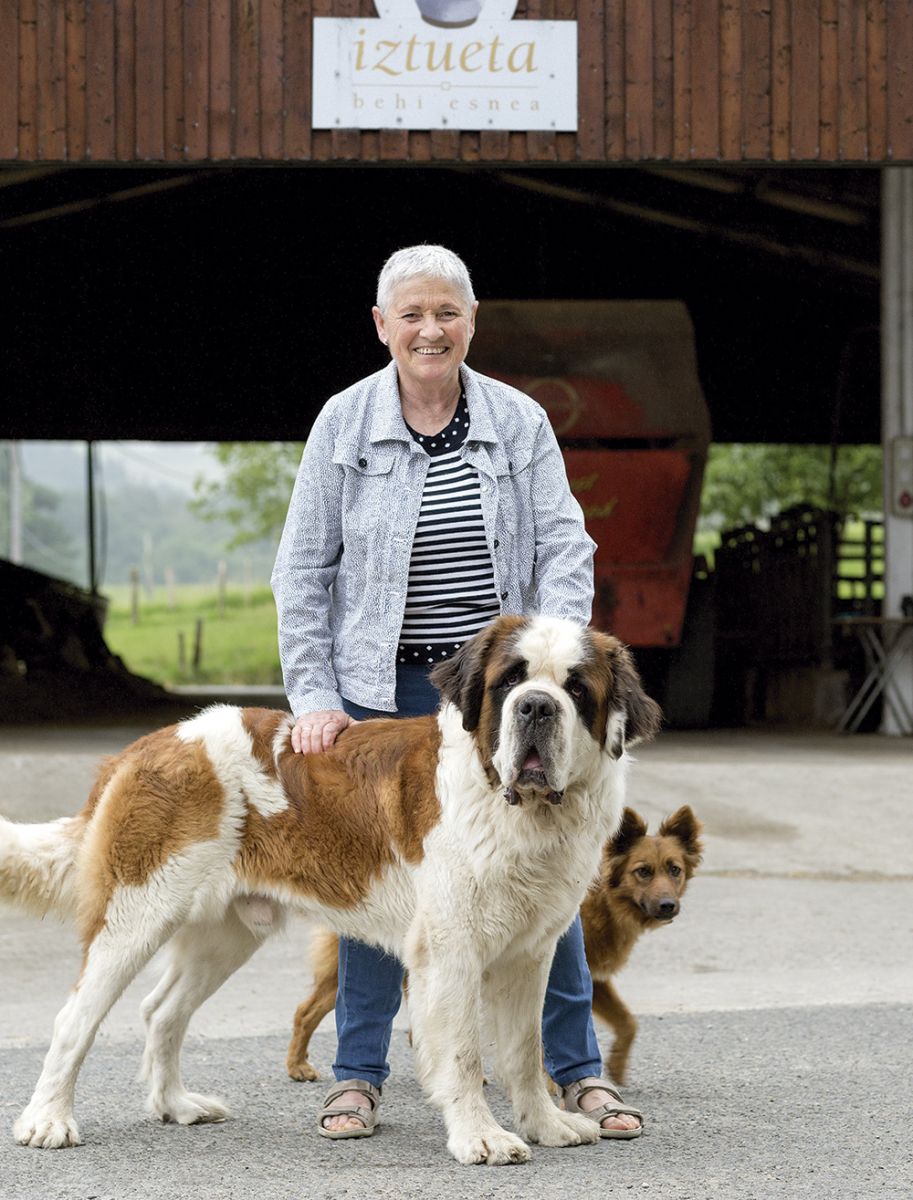
Live in milk since 1925. How has the road been made?
I remember how my grandfather went with his mule and his cart to collect and distribute milk in marmites. Then the mother followed and we followed the mother. Now Ainitze's daughter is the fourth generation. The change has gradually gone on, and it has always been seen that what we create in our home country has to be offered directly to the consumer, with as little intermediaries as possible.
Little by little everything has been evolving, but as in other times, today too, you have to take care of the fields, you have to respect the environment. In order to make agriculture sustainable, and you have to do so, you have to leave what you have so that it lasts as long as possible, and to do so you have to be absolutely respectful, and in short, one of our values is the environment and the agriculture that will last for years. Both in the maintenance of the land, in the care of the livestock, in the products you make and in the way you work, because those in the back will not want it. It must be permanent in every way.
You say that you studied outside. What did you learn?
I studied, worked at a ikastola with young children. I was 17 to 18 years old, and they're pretty crazy years. I was very comfortable and because I don't have to stand, I did a lot of things.
How did you decide to go back to the cottage?
When I was already living with my partner, my father died in an accident here at home. At that time his mother, father and brother lived in the house. His father's blow was terrible to his mother. All the siblings met and we saw that it was best to surround someone. I prepared myself, another sister, and in the end it was decided that I would be the best and so it was done.
When was that?
It'll be 38 years.
Is it necessary to diversify in order to continue?
Yes, diversify or, at least, get you out to that work that adds value. That is, if you transform the milk and you sell it, you get the profitability there may be in it. But if you give milk to the plant, it's something else.
Is it very important for you to maintain independence?
Yes, a lot. For me, at least, it's fundamental, and it's essential for me to follow the dwarf. If it is a little larger or smaller, there may be economic activities; depending on the amount of land it has, the activities it carries out will have to be adapted, but there may be many ways. However, these clarifications have to be given by someone, and it was missing and it is still noticeable today.
In addition to milk and dairy products, they also offer other services such as guided tours.
You yourself said it before, two generations ago and we all came from the farmhouse, and what we have done now is to completely disconnect. You need to rebuild those broken bridges, and visits can also be for that. They come mostly children, but also adults, and people go crazy.
You started making yogurts and ice cream in 2015. Isn't she afraid?
We've never been afraid. If you take steps gradually and take firm steps, and in our case at least that has been the case, if you move forward gradually. You don't approach five steps, one after the other, then you do have every chance of falling into the abyss. And I, at least, have never been afraid, we've always had that strength to move forward.
You're always fighting… How many people do you work here?
Here, paying the salary, we have four people. On the one hand, Ainitze and I, and on the other, we have two workers who help us with innovation and distribution, because at the end of the day we do the whole chain, also distribution, we don't give it to a distributor. That's how we control all of us, and that's really important, because otherwise you can get out of your hand if you give it to another person. You can do things that you do not want or that you do not accept on your behalf.
Paying the salary we are working four people, but behind us we have a big group, a family, a husband, a son, a son-in-law, a daughter-in-law, a few sisters… it is very important that we all have the same project and take steps towards that goal.

What is owning the farmhouse? What does it take to govern the dwelling?
To us, the mother marked the road a lot, it was very strong. I've always thought about how to follow the cottage, and my job has been to do it a little bit. I’ve been one more, but I’ve focused it or I’ve picked it up or coordinated… I’ve picked it up.
Like the tail?
I don’t know, I haven’t forced anyone by the neck… They’ve come, and the project has been the one that has brought us together. The task of the boss is not to give orders, that is a very bad boss, the boss has to motivate, encourage, have a road, have a project... The project is not just mine, it is everybody, and we work like us, not me, but us: coordinating, encouraging and valuing ourselves.
And when problems arise?
Talk. When problems arise, and of course there are problems, we have to talk, we have to solve them, and from there there there is no more.
The association Aspegi (Association of Professional and Business Women of Gipuzkoa) has awarded you the award for the best female entrepreneur. How did she take it?
At first you say that you are the best entrepreneur, you do so a little bit in the ear, but after all it has been the recognition of my career and giving a person in the primary sector its importance. I've taken it very willingly and contented.
Do you mean something else?
I would like to highlight the role of women in housing. The woman has been and continues to be the main base of the dwelling. I am sure that if there is no woman on the farm it will end.
What have the women given to the house?
Of course, we have given him the following and we have given a new vision of the dwelling. How many people do you see doing a direct sale? Almost all of them are women. The woman has always had that point of view about how we have to be in the squares for the dwelling to go ahead. How are we going to solve the product we make? Direct sales, relationship with the public. Man has gone further: to buy machinery, another segar machine, I don’t know what… The woman, as far as the house is concerned, has always seen very clear where the acorn comes from and where the acorn is, and how to work. Man has gone more to do the amount, and that has never been done here. We are clear that no, we are going to work with what we have: we have more or less as many hectares of livestock, and we are not going to put more livestock, we do not know how much our production is going to increase, no, it is a tremendous mistake. We have what we have, and with that we work. We have to make quality milk, transforming it to produce quality products.
Does the role of women not look like this from the outside?
The work of women has always been secondary, we too have always held our heads in the background, that is what religion has always taught us, etc. We started to break with that, but it's been a tremendous burden, always in the background and not just in the dwellings, also on the street, maybe even more in the dwellings. We have to face it, we are here and we value it, and we have shown that we do. That is why the Aspegi prize has been a recognition.
“Beti ari gara eragin eta eragin, hara eta hona joan eta ikusi, beti eboluzionatzen eta beti berritzen, berrikuntza konstante batean. Behar-beharrezkoa da edozein lantegitan. Pausoka-pausoka, hainbat gauza dauzkagu buruan, eta udazkenean ziurrenera produktu berri batekin etorriko gara”.
Klima aldaketaren eraginez, munduko lurralde gero eta gehiago idortzen ari dira, milioika pertsonaren jarduera eta bizimoduak kolokan ezarririk. Fenomeno horren frontean dago India erdialdeko Maharashtra estatua, non klimaren berotzeari eta lehortzeari metatu zaizkien oihan... [+]











